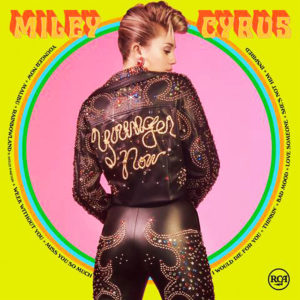By Christian Welker
As I looked back over my college experience, there was this nagging sensation following me that I struggled to put my finger on. However, through conversations with friends and memories of the Houghton I first applied to, one phrase came to mind:
We have been silenced.
Let me be clear. This is not about Houghton’s academics. The classroom can be a spot for discussion and questions, which I believe is one of Houghton’s most amazing features. But we, students, have been taught a different lesson when we step out of the classroom.
Through the Houghton Rock, we’ve been taught that expressions of our sexuality, if they don’t match with Wesleyan virtues, will be met with anger and American flags.
Through the relocation of the Rock, we’ve been taught that the methods of creative expression will be regulated to the Field of Dreams if they make for uncomfortable press.
Through the Rainbow Alliance Cooperative, we’ve been taught that clubs and people who don’t adhere to the status quo will lose their ability to speak and gather freely on campus.
Through the Mosaic Center and the Center for Sustainability, we’ve watched programs designed to begin these conversations fall to ruin and vanish, becoming mere shadows of what they were meant to be.
My first serious opinion for The Houghton STAR was about debate in the modern world, which has become more about winning than discussing opposing views. In my four years at Houghton, I’ve seen that belief taken to the extreme. We are afraid to speak because others will do anything to win. It seems that if someone’s views do not perfectly align with the status quo presented to them, there is no support for them to present their ideas safely.
Conversation appears to have withered and died, with its only remains being the shallow roots of widely accepted facts, recycled endlessly from chapel pulpits and STAR articles: Jesus loves us. We should love others. Get off your phones during Chapel. Even Around the Table, which was supposed to be a place where deeper conversations occurred, has fallen into this pattern.
There is nothing inherently wrong with these messages. They can be timely and important in the right context, but the problem that has arisen is that these are the only conversations happening. This has cheapened those messages when deeper, more meaningful discussions could be paired with “Jesus loves us, we should love others” to take the message to the next level.
I’ve spoken to freshmen and sophomores who have told me that Houghton doesn’t seem like a place where open conversations can happen. Students find their bubbles and stay within them and rarely, if ever, bridge the gaps that form between them. I’m drawn to compare this to my freshman year (2020), when conversations about difficult topics happened frequently. Issues like race, sexuality, politics, and religious beliefs were commonplace, and there was little fear of expressing one’s own beliefs. Houghton was the place that broke the assumptions and stereotypes that I had started my college experience with. I had grown up in a conservative Christian environment and was simply never exposed to the LGBTQIA+ community, or the struggles that minorities go through on a daily basis. These conversations helped me round out my understanding and grow more accepting of ideas contrary to my own, shifting my perspective on social issues in ways that drastically changed who I was. These conversations made me the complete person I am today.
I’m afraid that the Houghton where those conversations happened is gone.
In its place, a silent campus has arisen. When conversations do happen, they have become loud, angry, and fear-inducing. The old Houghton would have embraced Chapel talks on uncomfortable subjects. It would have stoked the flames of discussion instead of suffocating voices out of fear that the fire would escape the bubble that we are in.
I miss that Houghton.
The new Houghton that has risen in its place threatens to collapse the community we’ve spent so long building. This new Houghton of simple chapel messages and simple opinions. This new Houghton of silence and silencing. This new Houghton where the only discussions that happen must take place in the classroom or administration-approved events. While the old Houghton boasted student-led forums on difficult topics and personal experiences, this new Houghton has forums led by singular faculty members where questions can be submitted via an online form and fed to the speakers via middlemen.
What is there, then, to be done? This silenced Houghton has become the new normal. How can we return conversation and debate to a silent campus without an explosive result?
Beginning the conversation is key to returning to the old Houghton. We must embrace the difficult and scary conversations, stand out from the crowd, and show why we are unique. We must listen to the voices that we disagree with instead of shutting them down or shutting them out. We cannot expect that the opportunity for these conversations will be handed to us; we must make these opportunities for ourselves.
I wouldn’t have become the man I am today in this new silent Houghton. Those who were willing to speak, the LGBTQIA+ students, the liberals, the conservatives, and speakers who challenged our view of the Bible and the God that we worship, shook my beliefs to their core. Despite the potential backlash they faced, they began the conversations and fundamentally changed who I am, making me love God and others in ways that this new Houghton’s “Jesus loves you, this is all” message would never have managed. I will forever be grateful to those people and the Houghton who allowed them to do what they did.
My only hope is that those following me will have that experience. I pray that Houghton will allow them to burst their bubbles and make connections instead of silencing them to maintain a status quo.
We have to begin the conversation.
Even when it feels like we have been silenced, we can still use our voices to improve the world. ★

 If I could describe her new album “Younger Now” in one word, it would be “mature.” It’s miles and miles ahead of Miley’s older songs, all dripping with pop star dreams and the monster that fame makes of us all. In her new album, Miley revisits her roots in the Memphis country music scene, borrowing from influences like Elvis, Dolly Parton (who makes an appearance in the track “Rainbowland”), and her father, Billy Ray Cyrus. The album has the reflectiveness that is often evident in these kinds of songs.
If I could describe her new album “Younger Now” in one word, it would be “mature.” It’s miles and miles ahead of Miley’s older songs, all dripping with pop star dreams and the monster that fame makes of us all. In her new album, Miley revisits her roots in the Memphis country music scene, borrowing from influences like Elvis, Dolly Parton (who makes an appearance in the track “Rainbowland”), and her father, Billy Ray Cyrus. The album has the reflectiveness that is often evident in these kinds of songs.